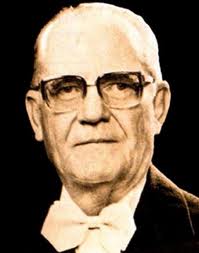Protests delay Air Force contracts for firefighting, war planes
By Danielle Ivory
Bloomberg News
Wed, 06/05/2013 - 10:00am
WASHINGTON — The U.S. Air Force was set to deliver aircraft to the Afghan military in April. Its suppliers have only now started building them — after the contract was contested, canceled, re-bid, re-awarded, and contested yet again.
At the U.S. Forest Service, a protest of a contract for up to seven air tankers used to drop flame retardant means the 2013 wildfire season may be over by the time the planes are flying, said a spokesman for Sen. Mark Udall, D-Colo.
There’s little the agencies can do to prevent the automatic, 100-day work delays triggered by protests to the U.S. Government Accountability Office, which arbitrates contract disputes.
Protests have jumped 87 percent to a record 2,475 in the fiscal year ended Sept. 30 from fiscal 2006, which may be partly due to increased competition over declining awards in recent years. U.S. contracts fell about 4 percent to $512 billion last year from fiscal 2010, according to data compiled by Bloomberg.
The Air Force contract, with a maximum value of $950 million, was awarded to closely held Sierra Nevada Corp. and Brazilian subcontractor Embraer in December 2011. It has since been protested by Beechcraft.
Sierra Nevada officials had planned to supply the first of Embraer’s 20 turboprop aircraft in April 2013, said Taco Gilbert, a vice president at Sparks, Nev.-based Sierra Nevada, which is providing avionics and instruction under the contract.
“You have to have aircraft in order to train,” Gilbert said.
Instead, they won’t be delivered until mid- to late 2014, as the U.S. plans to withdraw the last of its combat troops from Afghanistan.
For companies such as closely held Beechcraft, securing contracts is key as the Pentagon and other agencies slow spending. The company’s direct military contracts plunged about 68 percent to $331 million in fiscal 2012 from fiscal 2009, according to data compiled by Bloomberg. Beechcraft announced on Feb. 19 that it had emerged from bankruptcy protection.
For Embraer, the award is a coup. The company is trying to tap the U.S. military market and expand its defense unit, which produced 15 percent of its 2011 sales.
As a last-ditch effort, the government can supersede the stays with an override, which requires the officials to justify an urgent need or show that it’s in the best interest of U.S. taxpayers.
In March, the Air Force chose to override the latest protest from Wichita, Kansas-based Beechcraft, authorizing Sierra and subcontractor Embraer to resume work.
The military, in a memo to the GAO, cited “unusual and compelling circumstances that significantly affect the national security interests of the United States and its coalition partners.”
Beechcraft has called the override unjustified, saying in a statement that the Air Force’s decision would lead to higher costs to taxpayers. It lost its challenge of the override at the U.S. Court of Federal Claims. The GAO has until June 17 to make a decision on the company’s protest of the contract.
Agency officials rarely use overrides. Even as protests soared, overrides have dropped by almost half to 33 in fiscal 2012 from 62 in fiscal 2006, according to GAO data obtained through a Freedom of Information Act request.
Their waning popularity may be a result of increasing scrutiny from the Court of Federal Claims, which has let agencies know that it’s “not going to give them a free pass,” said Daniel Forman, a partner and co-chairman of the government contracting unit at the Washington-based law firm Crowell & Moring LLP.
The decline also may reflect the wind-down of two wars and agencies’ reluctance to take on more risk and costs. After all, an override won’t put an end to a protest: It allows work to resume while the GAO is deciding.
The decision doesn’t always favor the original contractor. The Army last year used an override to provide intelligence support in Afghanistan after Mission Essential Personnel LLC challenged orders valued at as much as $71 million to a subsidiary of New York-based L-3 Communications Holdings Inc. L- 3 got 76 percent of its revenue in 2012 from the U.S. government, according to a federal regulatory filing.
Closely held Mission Essential Personnel, based in Columbus, Ohio, argued that the service failed to engage the company in adequate discussions. The GAO later sustained the protest.
Another approach is to simply acknowledge that protests are so much a part of today’s acquisition process that agencies should plan for them.
Sue Payton, who was assistant secretary for acquisition at the Air Force from 2006 to 2009, said she used to build potential delays into the timeline for planning contracts.
The most effective way of avoiding challenges, though, is making sure the contracting process is fair and complete from beginning to end, according to current and former military officials.
“Getting the requirements right up front saves you from protest hell,” Payton said.
The Army tries to deter protests with contract solicitations that are “thoroughly scrubbed” to make sure they are clear, concise and compliant with federal regulations, said Matthew Bourke, a spokesman for the service. It also works to keep “a very open dialog with our industry partners,” he said in an e-mail.
Even so, there’s no way to avoid the challenges, Bourke said.
Once they start, they can drag on so long that they risk public safety.
On May 6, Colorado’s Udall urged aviation companies “to put lives before legal disputes” by allowing the Forest Service to move forward with contracts for as many as seven next-generation air tankers used to fight fires.
The Forest Service is “being forced to fight modern mega- fires with Korean War-era aircraft,” Udall spokesman Mike Saccone said. Colorado suffered its most expensive fire season last year, with an estimated cost of $450 million to insurers as of July, according to the Rocky Mountain Insurance Information Association.
Udall also called for the Forest Service to override the automatic delay triggered by a protest filed that month by Neptune Aviation Services. The Missoula, Mont.-based company had been passed over for the tanker contracts, valued at about $60 million over five years, according to Saccone. They were awarded to five closely held companies.
There have been no significant changes to the automatic delays in almost two decades. Congress in 2009 requested that GAO assess whether frivolous protests were rising. The office responded that attempts to discourage those challenges might backfire by adding costs and deterring “good-faith protests.”
Protests can serve as checks and balances to a sometimes opaque and flawed contracting process.
A prime example is the Air Force’s attempt to procure aerial refueling tankers. Chicago-based Boeing eventually prevailed against competitors European Aeronautic, Defence & Space Co. and Northrop Grumman.
Boeing’s first attempt at the $35 billion contract was derailed in 2004 by a scandal involving former top Air Force procurement official Darleen Druyun and then-Boeing Chief Financial Officer Michael Sears. Sears offered Druyun a job in October 2002 during the initial tanker negotiations. She was hired in January 2003.
Sears and Druyun were convicted of violating federal conflict-of-interest laws.
Boeing was awarded the contract in February 2011, about 10 years after the Air Force first proposed the tanker-replacement program.








